Airbnb fees have gone from a novelty to one of the most important discussions within the hospitality industry. Airbnb has proven itself to be a notable competitor to the standard hotel model. The associated fees for using the Airbnb service, for both hosts and guests alike, aren’t always so readily apparent. Understanding how Airbnb’s revenue system works and how to leverage it properly is a fundamental step in gaining competitive advantages. The better you can work with the system, the more competitive your pricing.
In this article, you’ll learn about the different forms of Airbnb fees, guests’ perception of them, and competitiveness.
Table of Contents:
- What Are Airbnb Fees and How Do They Work?
- Why Understanding Airbnb Fees Is Important for Hotels?
- The Impact of Airbnb Fees on Market Profitability
- Essential Factors to Consider About Airbnb Fees
- 6 Key Types of Airbnb Fees Hoteliers Should Know About
- Strategic Approaches for Hoteliers Competing Against Airbnb’s Fee Structure
- Airbnb Pricing Strategies: Ultimate Guide for Revenue Management
- Hotel Fees: A Comprehensive Guide to Understanding Accommodation Charges
What Are Airbnb Fees and How Do They Work?
Airbnb fees are calculated quite differently from a typical hotel system, as both guests and hosts pay during the booking. Cleaning, host or guest services, and other fees are combined to create a final value. This split-fee structure helps to fund the marketplace, customer support, payment processing, and general revenue. The base rates are kept separate from secondary fees, which further differentiates Airbnb from traditional hotel billing methodology. Hoteliers need to consider all of these variables and Airbnb’s full fee structure to compete properly.
Video: Airbnb Fees – Explained!
Why Understanding Airbnb Fees Is Important for Hotels?
Understanding the Airbnb cost structure is essential for anyone in the hotel industry. More and more of your potential guests are moving past base rates to consider combined total costs when deciding where to stay. When you understand Airbnb fees and pricing structures, you can construct your own competitive strategies that properly leverage your resources by demonstrating intrinsic value. For example, you might highlight the fact that you can provide inclusive, clear pricing that removes concerns about hidden charges. Remaining competitive requires insight into your opponent’s tools and strategies.
The Impact of Airbnb Fees on Market Profitability
Competitive pricing is an essential part of the hospitality industry. However, directly comparing costs between hotels and Airbnb can be misleading. For example, a hotel generally pays OTAs a commission of around 15% to 25%. Airbnb guest fees account for 5% to 15%, while the hosts pay 3% to 5%. Directly comparing the hotel fees to the Airbnb cost would be misleading without factoring in Airbnb’s split-fee model.
The Airbnb model generally moves the commission costs to the guest rather than the host, which is quite different from hotels. Likewise, Airbnb lacks the assumed bundles that hotels provide. These elements can make it difficult to stand out in direct cost comparisons because of Airbnb’s low base rate when decoupled from other fees. Hotels need to carefully strategize to compensate for these elements.
Video: How Much Money Does Airbnb Take From Hosts? [Airbnb Fees Explained]
Essential Factors to Consider About Airbnb Fees
When you’re working on your business strategy, you’ll need to consider these key elements of Airbnb fees.
- Fee Transparency: Airbnb fees have become more similar to hotel booking sites by increasing the transparency of their fees in search results. Remember Airbnb’s total-cost view when designing your appearance in price comparisons.
- Split-Fee vs. Host-Only Models: The Airbnb fees leverage two options: split-fee with dual payment of host and guest, and a host-only option with a higher percentile (14% to 16%) for hosts but no fees for guests.
- Competitive Price Positioning: The competitive health of your property is heavily correlated with Airbnb fees, so you need to examine them when benchmarking Airbnb listings within a competitive set.
- Regional Variations: Different regions have significant differences in Airbnb fees due to regulatory requirements and tax laws. When creating a competitive strategy, make sure you study how this impacts your market.
- Corporate Travel Advantage: You can set prices for your property, but Airbnb fees are typically non-negotiable and thus can’t compete with your options for loyalty programs, negotiated packages, corporate rates, and other business-friendly benefits.
- Cancellation Flexibility: Airbnb typically can’t compete with a hotel’s more accommodating flexibility for cancellations, as Airbnb hosts face greater financial pitfalls from them.
6 Key Types of Airbnb Fees Hoteliers Should Know About
The different variables that go into Airbnb fees directly impact a guest’s total cost, which also impacts comparisons with your hotel. Make sure you consider the following six types of Airbnb fees when drafting your competitive strategies.
1. Airbnb Host Fee
Airbnb charges, explained at a basic level, typically come down to the split-fee pricing structure. Because Airbnb uses this model, often with many hidden costs, host and guest income need to be considered independently. Commissions from a hotel distribution channel are typically around 15% to 25%. Meanwhile, the fee from Airbnb hosts is only a fraction of that, at 3% to 5% of the booking cost. Some other factors, like cancellation fees, taxes, and especially cleaning fees, will also impact those numbers.
However, Airbnb leverages its cost advantage for hosts to maintain profit margins. The host fee for Airbnb is not just different in amount but in how it’s used for other pricing decisions. When you understand that disparity, you’ll be able to compete with low Airbnb commission rates or the benefits they derive from those rates through elements like direct booking. Consider financial elements that Airbnb can’t offer, but hotels can. If you want to explore the various features of Airbnb’s host dashboard, read “Airbnb Login: Tips For Airbnb Hosts To Optimize Your Listing.”
Video: Airbnb Rates, Fees & Taxes for Hosts
2. Airbnb Guest Fee
Guest fees are the other side of Airbnb’s split-fee pricing model. This is an additional 5% to 15% of the booking subtotal. This value is also generated before taxes and applied during the reservation. The exact percentile charged will typically be scaled by a number of different variables, such as how long the guest is staying, the location, and the full cost of the reservation.
The number of variables, in addition to the already complex split between the fee for guests and the host, makes pricing somewhat confusing for a lot of guests. In contrast, a hotel’s pricing is generally quite straightforward, with additional fees only coming with a guest’s decision to include additional services. People appreciate transparency, and pointing out your lack of hidden fees or surprise charges is a good way to demonstrate your property’s intrinsic value to potential guests.
3. Airbnb Cleaning Fee
Cleaning services are one of the most significant Airbnb additional costs and heavily influence the overall business strategy. Cleaning services in a hotel represent a significant investment. However, that cleaning service is also heavily scheduled, reliable, and predictable. Guests know what they can expect from housekeeping when they book a reservation. The cleaning investment with Airbnb fees is far less obvious. The cost of cleaning in Airbnb will usually be a one-time fee, but most other elements can vary tremendously by individual owner.
Other variables that contribute to the cleaning cost are the size of the property, location, and how much work is required for the job. The cleaning fees may or may not be added to the Airbnb’s nightly rate rather than as a single additional fee. All of these factors are why shorter stays can be expensive with an Airbnb. A shorter stay still requires the same cleaning investment. The simple, transparent cleaning model of hotels is a solid selling point to potential guests. If you want to learn more about Airbnb cleaning fees, read “How to Outsource Airbnb Cleaning Service.”
Video: Airbnb Cleaning Fees
4. Airbnb Currency Exchange Fee
Currency issues are another one of the Airbnb booking fees that tend to be overlooked. Guests can pay in a wide variety of different currencies from what’s used locally. However, if this differs from the host’s preference, then an additional charge is added for currency conversion. This conversion cost is a flat 3%. The conversion fee is applied to offset the various costs a host pays for the conversion, as well as to supply a buffer for the standard fluctuations in exchange rates.
While an understandable fee, this additional cost for conversions is an obvious issue for many potential guests. Likewise, Airbnb conversion fees are an opportunity for hotels to promote their own services. Hotels can catch the eye of international travelers by highlighting a more favorable, friendly, and transparent relationship with foreign currency. By forming relationships with banks, a hotel can often provide far more competitive exchange rates than Airbnb.
5. Airbnb Listing Fee
Airbnb and standard hotels leverage various technologies to list their services to potential guests. However, Airbnb hosts differ in that they generally do not need to pay for the listings or maintain visibility. Instead, the fees come along with the booking. However, there are additional Airbnb fees associated with promotions or boosting visibility on specialized programs or services.
Easy entry and maintenance for Airbnb are huge differences from hotel listings. Traditional models require you to pay for multiple services at the same time – from photography to marketing and distribution. Likewise, the cost of those services often scales with increasing quality. Airbnb lets people bypass many of those hurdles, which can allow for rapid growth and pricing advantages over hotels. If you want to learn more tips about how to optimize your Airbnb listing, read “Airbnb Owner Login: SEO Tips to Optimize Your Airbnb Listing.”
6. Additional Airbnb Fees and Taxes
There’s also a considerable number of other elements that might factor in things that don’t fit within the previous categories. These additional Airbnb fees are sometimes a prerequisite for business within an area. For example, local regulations and tax laws will always be a factor to some extent. There are also a number of optional elements that depend on the guest, the host, or both.
Some of these elements include costs associated with pets, extra guest fees, security deposits, and more. This variation tends to be heavily dependent on location, so researching Airbnb competition will also help you understand the larger local Airbnb market. You should also avoid any assumptions that a hotel and Airbnb in the same general location will have the same tax obligations or regulations. Airbnb hosts may well have financial benefits that are not available to local hotels.
Strategic Approaches for Hoteliers Competing Against Airbnb’s Fee Structure
With a new understanding of Airbnb fees, you’re ready to leverage the following advantages to successfully and intelligently compete against them.
- Short-Stay Advantage Promotion: Emphasize your hotel’s cost-effective flexibility for shorter weekend stays, as Airbnb fees, especially cleaning costs, can make one or two-night stays quite costly.
- All-Inclusive Rate Messaging: An Airbnb pricing breakdown is usually more complex than guests anticipate due to its multi-fee system, so highlight the clarity and care of your property with language like “no surprise fees.“
- Value-Added Service Bundling: The à la carte Airbnb fees aren’t competitive with thoughtfully bundled hotel services like parking options, meals, and other amenities that add inherent value to your hotel.
- Competitive Total-Cost Analysis: Schedule careful reviews of Airbnb listings that are direct competitors, think about how the additional Airbnb fees factor in, and then consider changing your property’s rates to stay competitive.
- Length-of-Stay Strategy: One of the most significant problems with Airbnb fees is the cost of shorter stays due to Airbnb’s cleaning fees. You can gain an advantage by creating affordable short-stay strategies.
- Loyalty Program Advantages: Airbnb is seldom able to compete with the inherent flexibility and savings provided by hotel loyalty programs, so convey the benefits to guests by emphasizing the extra amenities, rewards, and upgrades your programs provide.

Krunal Shah, Cluster Director of Revenue, Dorsett Hospitality International“Depending on the requirement of the property and the location they are in, price changes become an integral part of a Revenue Manager’s role. If the property has a lot of competitors around their area, frequent pricing updates happen due to the continuous live rate shop of comp sets. In some countryside hotels/resorts, prices are changed not too frequently. I would rather disagree with the risk of losing revenue for last-minute sales. Primarily RM’s have to construct base occupancy for future months in order to gain incremental rates on last-minute sales. Comp Sets normally follow or benchmark certain top-performing properties. They don’t check if their pricing is relevant to the amount of occupancy they have On The Books. This leads to some properties performing above their fair share and some performing lower than their fair share. Rate Changes or pricing updates need to be done after the daily pick up report is released every morning. This is the best time for any price changes as it gives you the opportunity during the day to monitor the bookings coming in or even wash.” Click here to read about the hotel pricing updates from our Revenue Management Expert Panel. |
Airbnb Pricing Strategies: Ultimate Guide for Revenue Management
The specific methods and strategies used by Airbnb are essential reading for anyone in the hospitality industry. Both guest and Airbnb host fees influence the service strategies. Understanding the reasoning behind a competitor’s actions gives you the power to anticipate those movements and their probable responses to your own strategic plays against them. You can find detailed information about Airbnb policy, pricing models, competitive strategies, and how to leverage that information in the article “Airbnb Pricing Strategies: Ultimate Guide for Revenue Management.”
Hotel Fees: A Comprehensive Guide to Understanding Accommodation Charges
Competition with Airbnb or any other participant in the larger market requires an understanding of the hospitality industry’s revenue model. When you understand the model, you’re able to balance guest satisfaction with additional charges to create an optimal experience for every party. You’ll learn about the various hotel fees and when they’re most useful, strategies, and best practices, along with implementation tips in the article “Hotel Fees: A Comprehensive Guide to Understanding Accommodation Charges.”
Airbnb fees aren’t simply a flat number; and they’re a guide to your competitive strategy. When you understand why the fees are set, you’ll be able to strategize against them and predict their reactions. Study the fees and create strategies that position your strengths against the Airbnb model’s weaknesses.
Did You Like This Article about Airbnb Fees?
You might also be interested in the following articles:
- Airbnb Host Login: How to Get More Bookings on Airbnb
- Hostelworld Inbox: Essential Communication Tool for Hospitality Professionals
- AI Agents Are Now Booking Hotel Rooms – Is Your Property Ready?
More Tips to Grow Your Business
Revfine.com is the leading knowledge platform for the hospitality and travel industry. Professionals use our insights, strategies, and actionable tips to get inspired, optimize revenue, innovate processes, and improve customer experience.Explore expert advice on management, marketing, revenue management, operations, software, and technology in our dedicated Hotel, Hospitality, and Travel & Tourism categories.


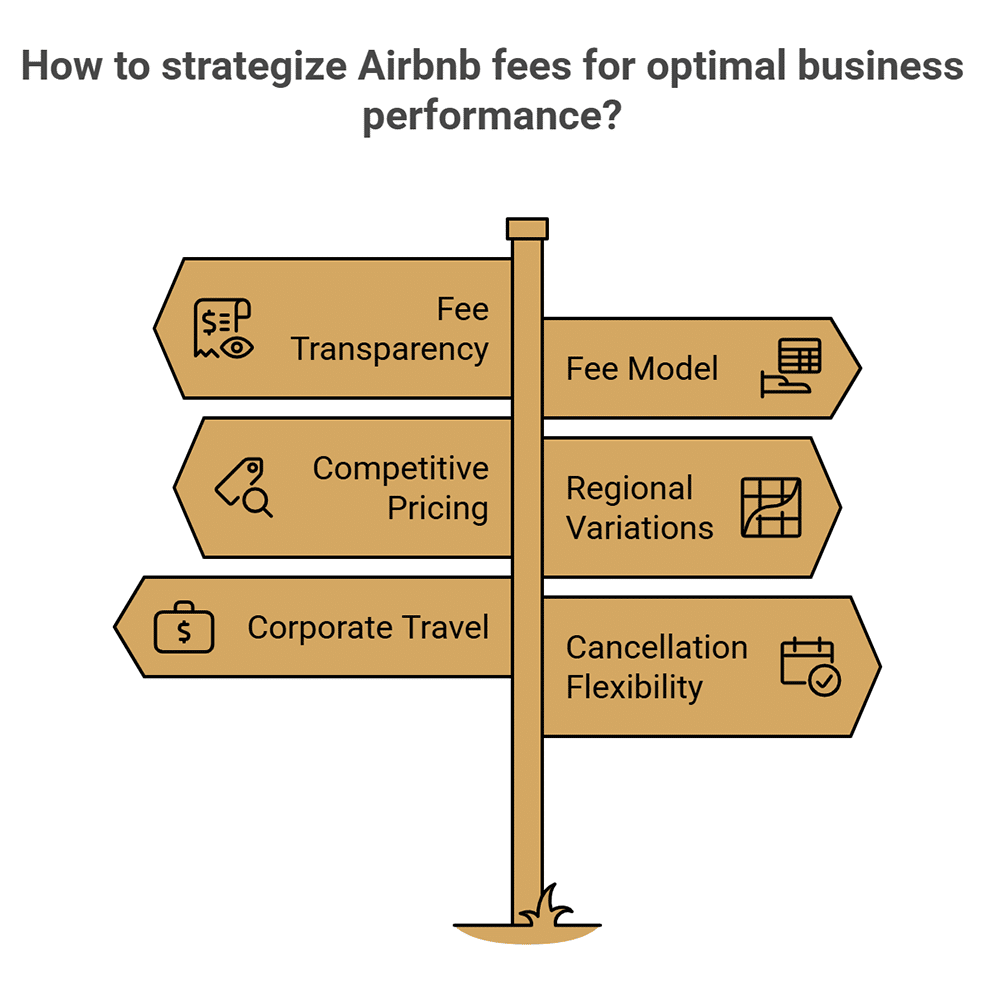
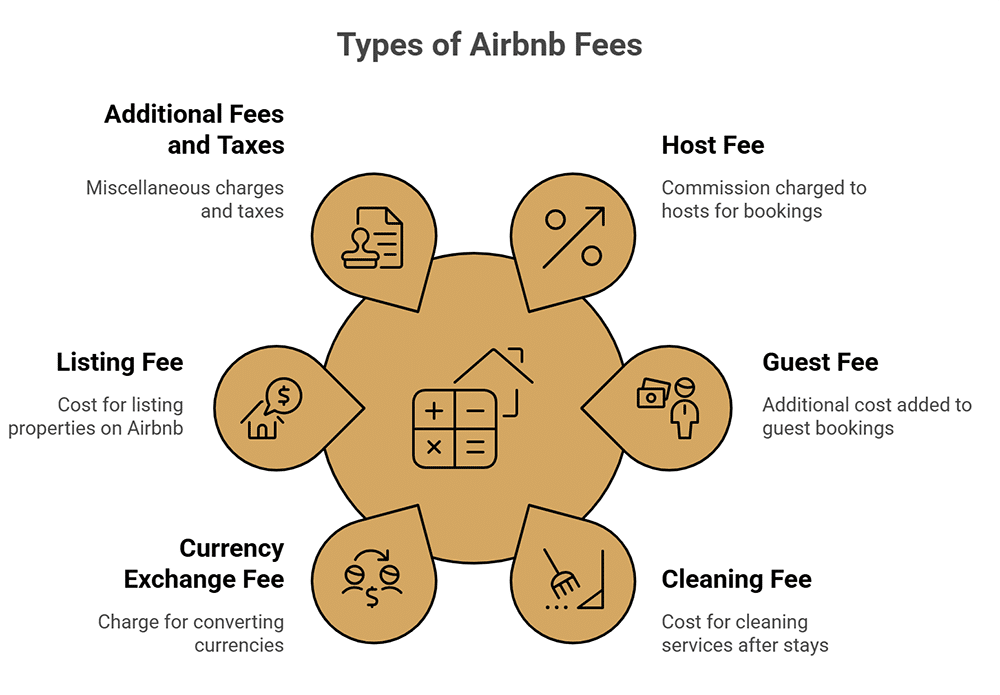


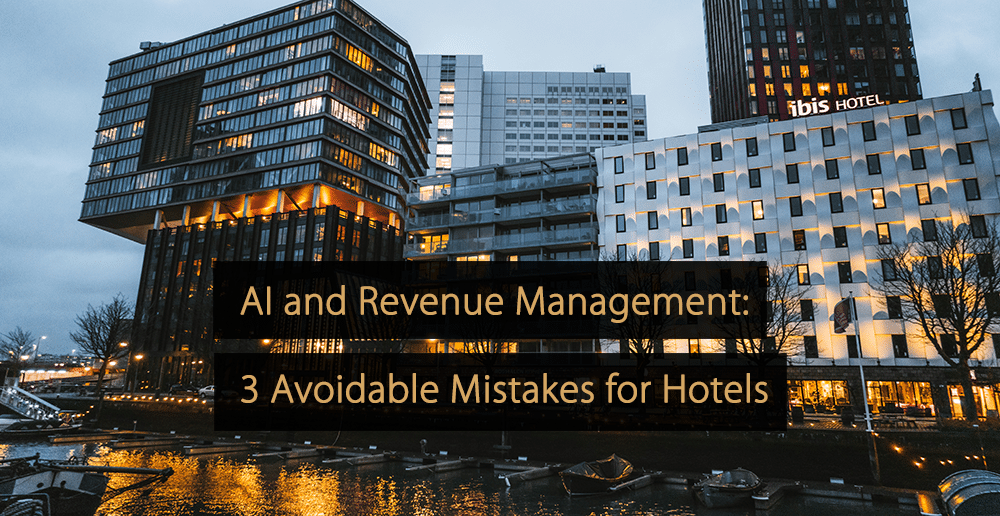
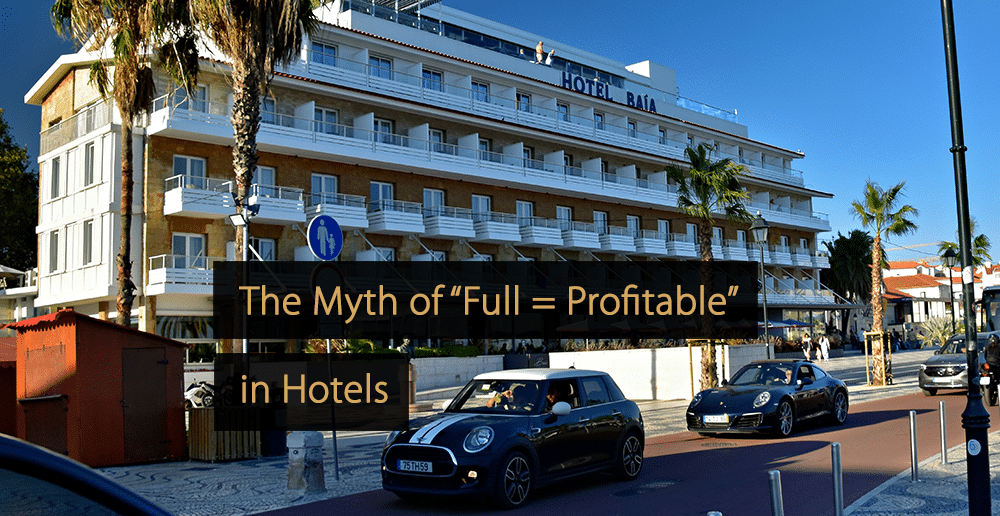
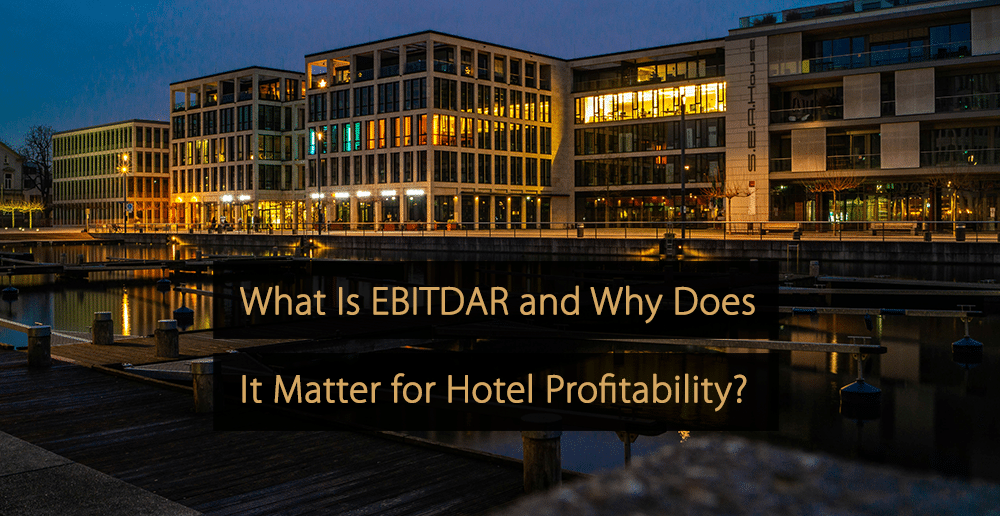

Leave A Comment